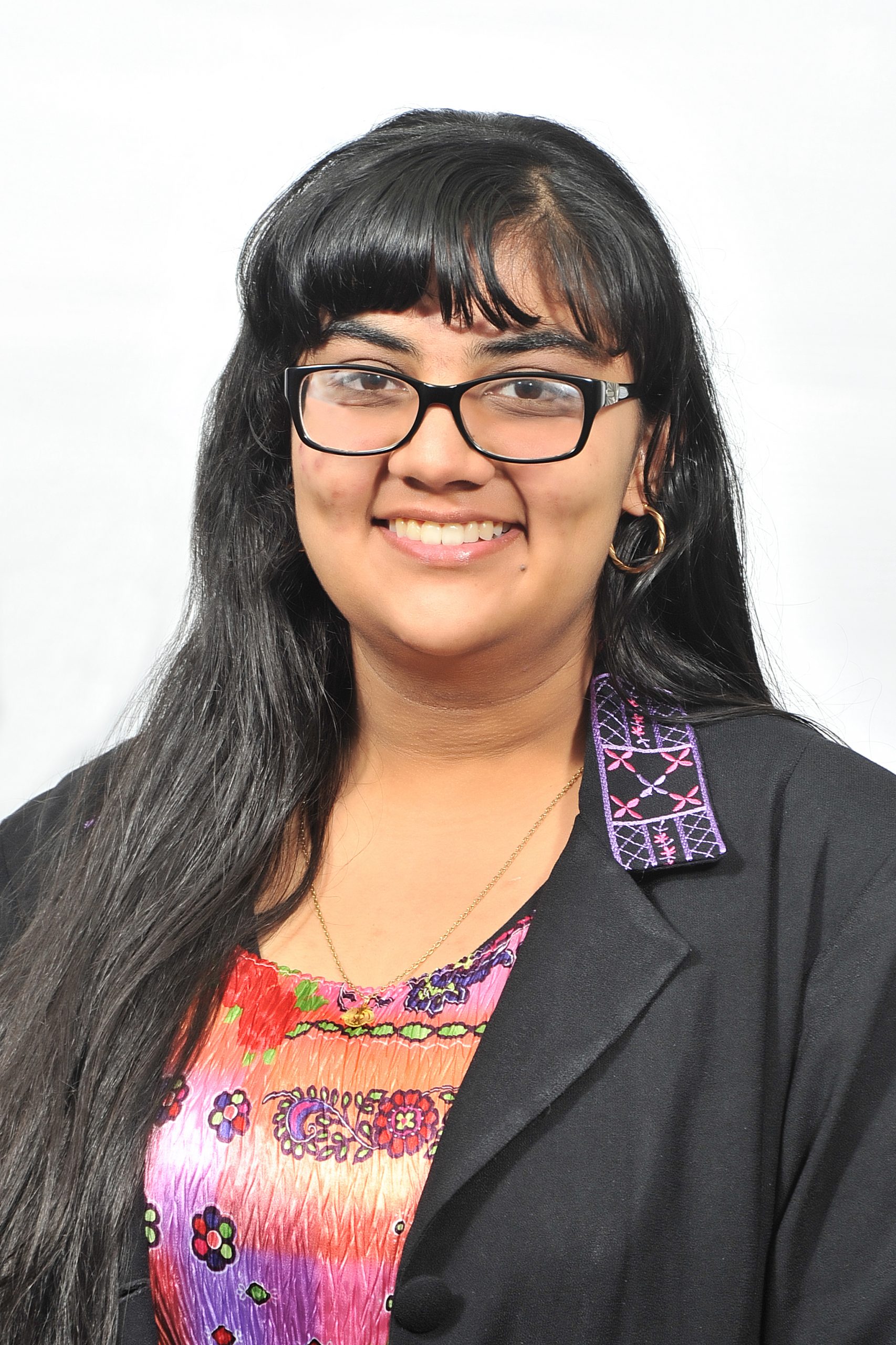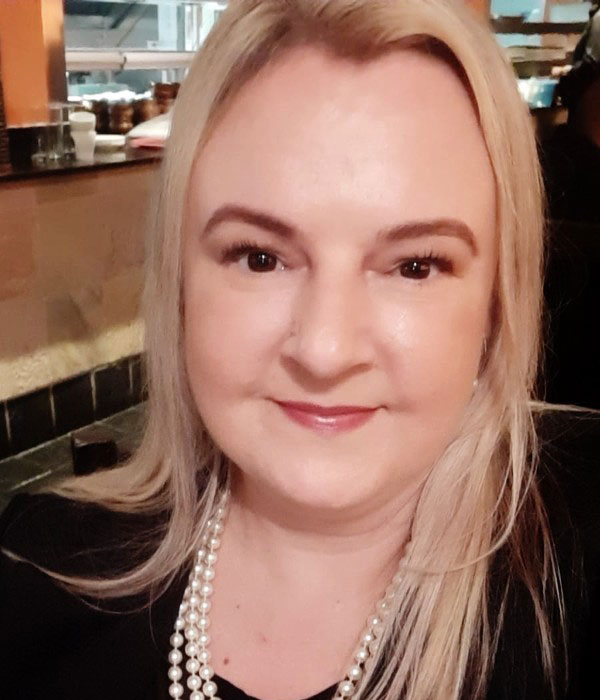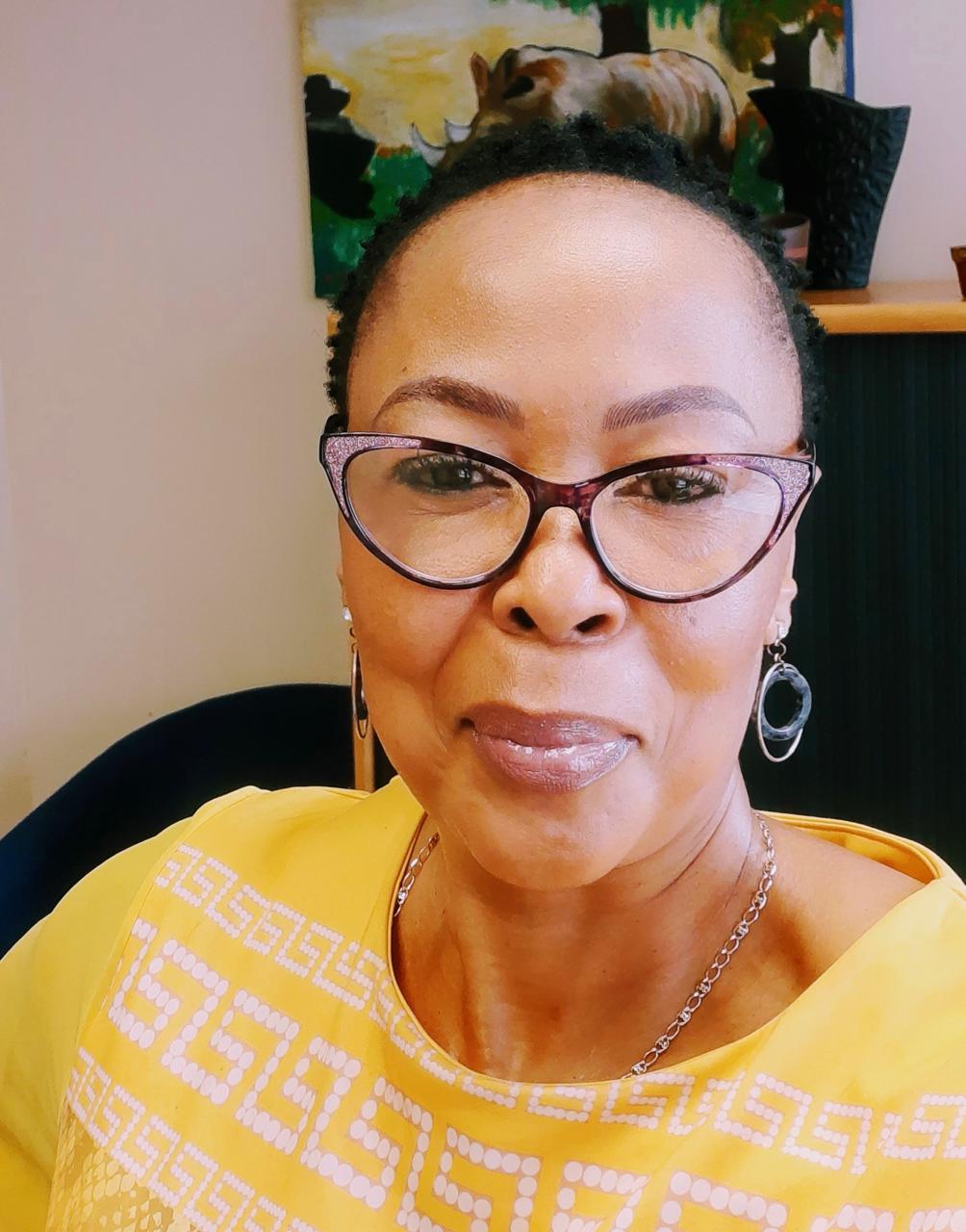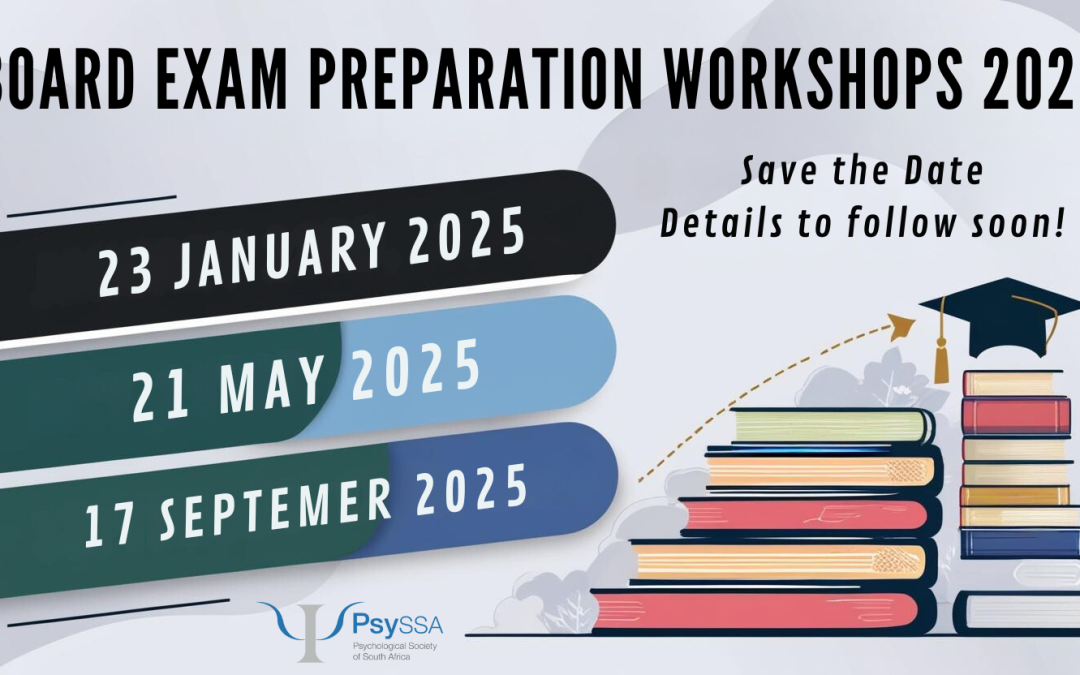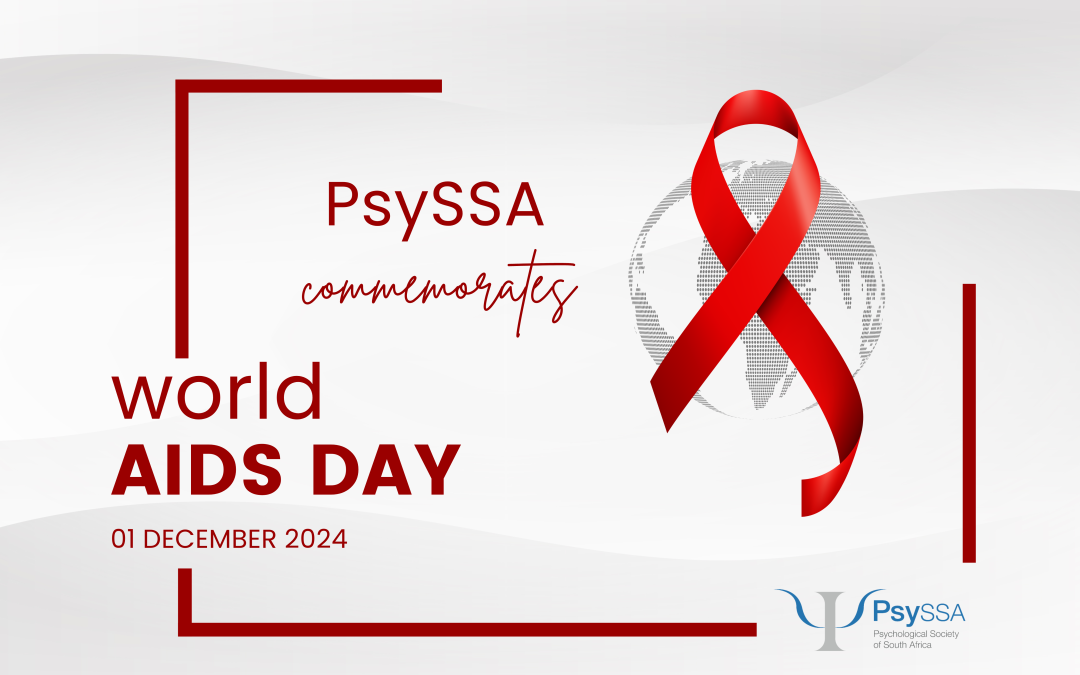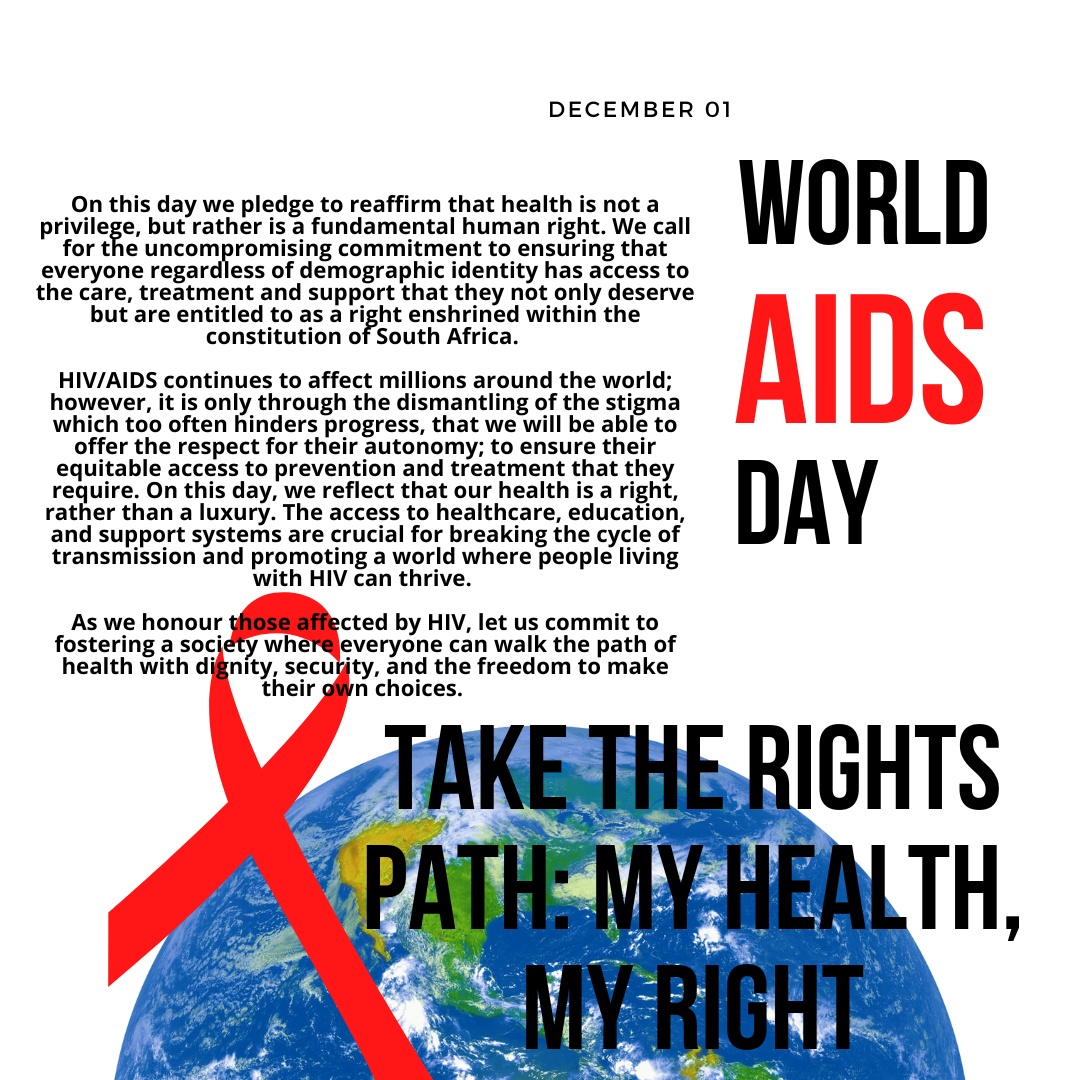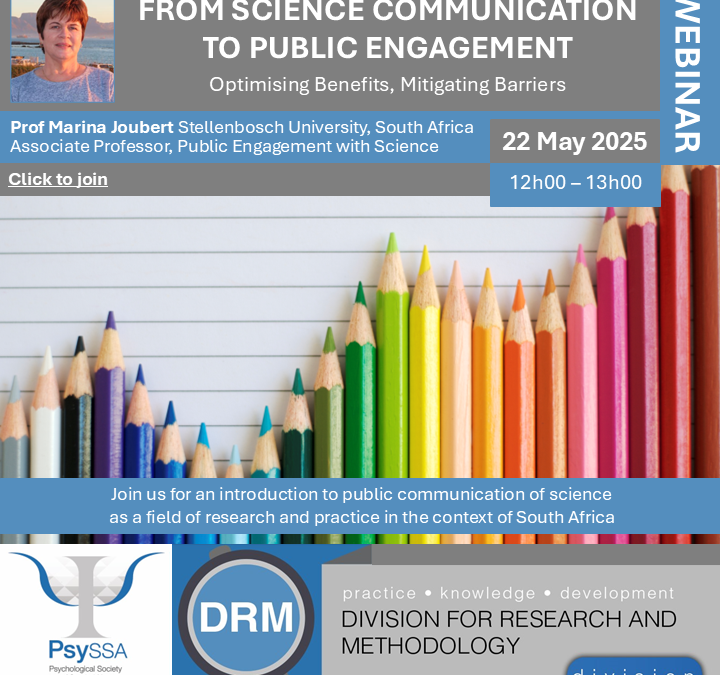
DRM Webinar: From Science Communication to Public Engagement
DRM Webinar: From Science Communication to Public Engagement
Join the PsySSA DRM and Prof Marina Joubert for an introduction to public communication of science as a field of research and practice in the context of South Africa.
From Science Communication to Public Engagement
Date: 22 May 2025
Time: 12h00 to 13h00
MS Teams Link: Click to join
About the webinar:
Professor Marina Joubert will introduce public communication of science as a field of research and practice in the context of South Africa, followed by a discussion of the rationale and drivers behind the trend from ‘public communication of science’ towards ‘public engagement with science’. She will explore the options for researchers to gain maximum benefit from public engagement while navigating the barriers and risks. Her talk will also briefly reflect on current insights from ‘the science of science communication’. She will share a curated collection of online resources with all participants.
Can’t join us live? Watch all recordings of the PsySSA DRM Webinars and Research Podcast episodes on the PsySSA DRM YouTube Channel
Prof Marina Joubert
Prof Marina Joubert is an associate professor of public engagement with science at Stellenbosch University in South Africa. She leads the Public Engagement Lab, located within the Centre for Research on Evaluation, Science and Technology (CREST). Following a career of more than 20 years in science communication practice, she joined the university in 2015 to start a new teaching and research programme in public communication of science. At Stellenbosch, she is responsible for an extensive education and supervision programme and a diverse research portfolio. Her international research collaborations include the EU-funded Eco2Wine Project and the ‘Just Transitions for Anti-Microbial Resistance’ global convening funded by The British Academy. She serves as deputy editor of the Journal of Science Communication (JCOM) and is an honorary lifetime member of the global Public Communication of Science and Technology (PCST) Network. Her research focuses on scientists’ roles in public engagement with science and the motivations and challenges that shape their interactions with society. She is also interested in institutional science communication, representations of science in the mass media, the ethics of science communication, and online interfaces between science and society.
Email: marinajoubert@sun.ac.za
Online profile: https://www0.sun.ac.za/crest/staff/Joubert/




